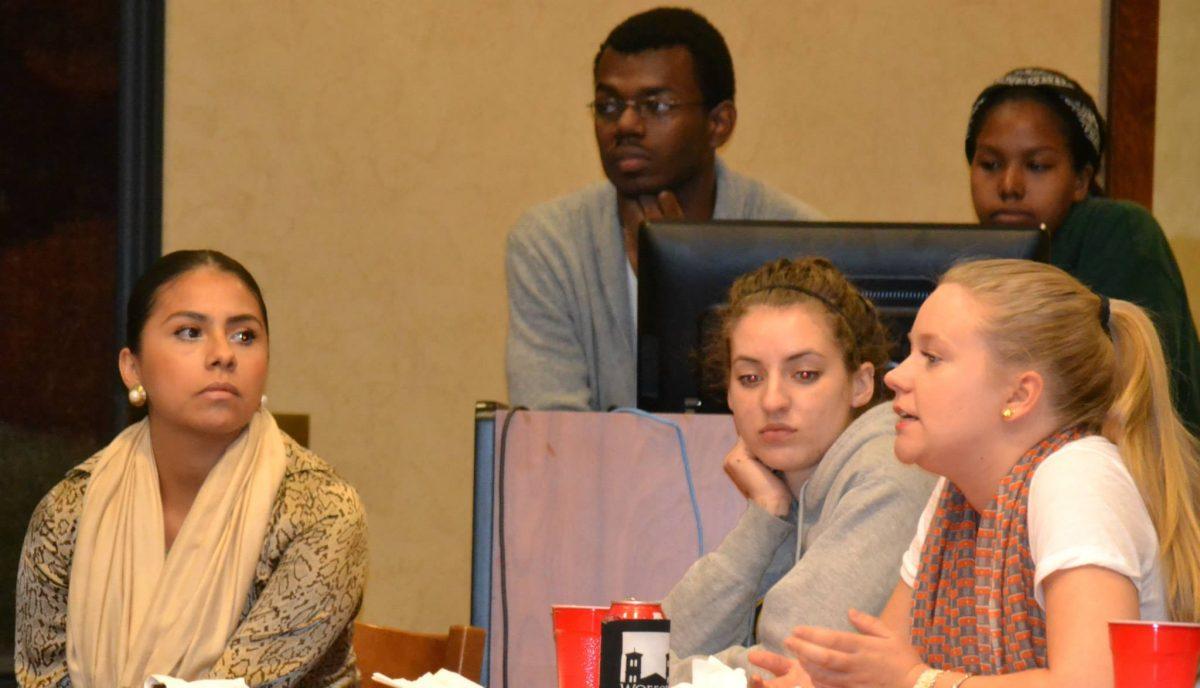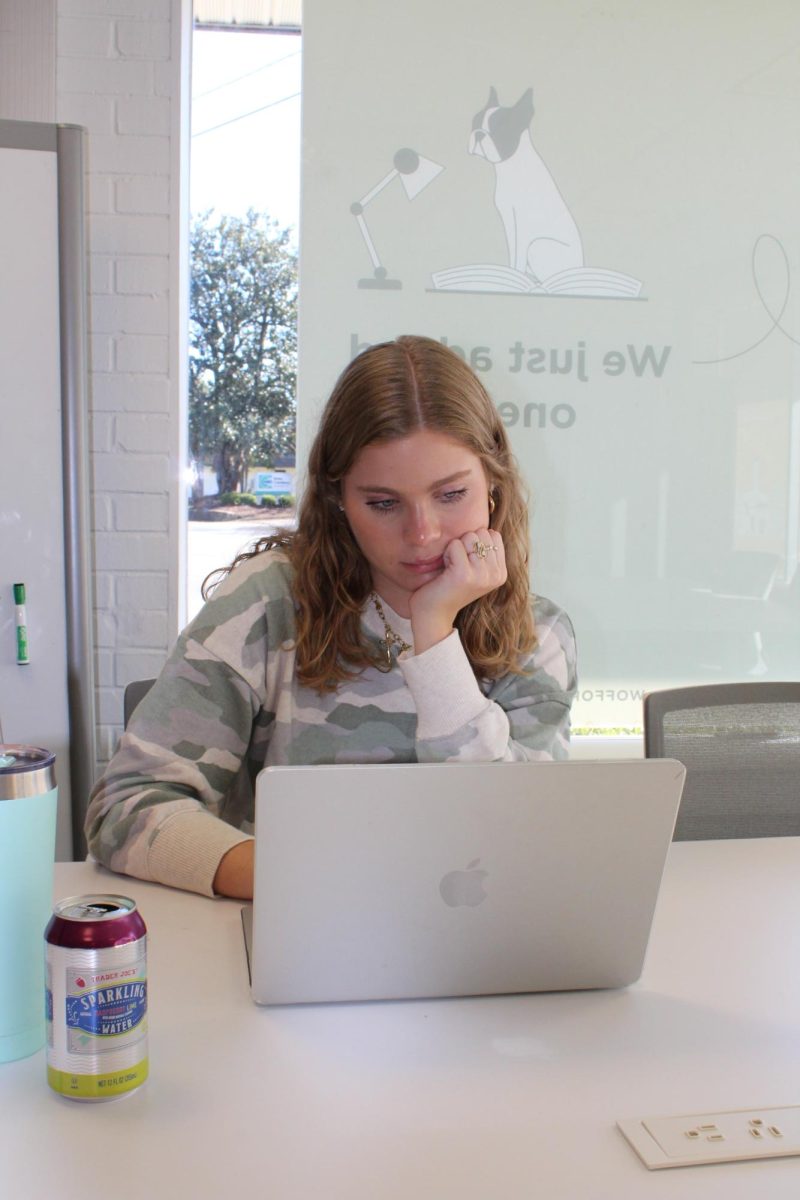THE FIRST OF MANY TABLE TALKS TO COME—
The Black Student Alliance held their first Table Talk series on Tuesday, Nov. 11. The topic focused on how people feel about interracial relationships.
At the beginning, a video was shown asking children what they thought about the Cheerios commercial with the interracial couple and their biracial daughter.
The results of the study demonstrated that children do not have an inherent racial bias to the Caucasian and the African-American father.
The first question to get the Table Talk started was, “What are some attributes about a person you may potentially date? Is race ever a factor?”
Jennifer Gutierrez, Wofford’s director of diversity and inclusion, is of Latina descent. She was the first to answer: “Growing up in a predominantly black neighborhood influenced how I saw relationships. I don’t discriminate, but I have my preferences.” Courtney Parsons, a Caucasian who has dealt with animosity for having a black boyfriend asked, “Is looking for just one race considered racist?”
Another student responded to nods of agreement from the participants,
“It’s just about where you feel comfortable.” “I think it’s only racist when you talk down on another race.
There is nothing wrong with having your preference,” says Julisa Muldrow.
Brendan Jackson chimed in with a comment about bi-racial children looking different than either parent. According to Jackson, some people want their children to look a certain way and it, in a way, is racist to seek a mate with the right skin tone just so your offspring can come out looking a certain way. Another student admitted that “most people may not care, but the problem comes in when people feel that others are judging them and they’re worried about what others may say about them” if they are seen with someone outside of their race.
Participants were then presented with a second question:
“Typically when we talk about interracial relationships, it is often under a black/white paradigm.
Why do you think that other races are consistently excluded or not thought of as much?”
It depends a lot on your back ground,” says Caitlynn Myer. “I think it’s different when you see a black male with a white female than when you see a black female with a white male. My mother is black and my father is white, and we still get weird looks when we go out.”
Daija Rogers points out the generalization of how “when a white girl dates a black guy, their friends don’t think much of it. But when a black girl dates a white guy, it’s a big deal because it’s harder for black girls to attract white men.”
In the media, black girls are often represented as the white man’s “mistresses,” even though today’s society is a little more open than it used to be. Although this stereotype was more prevalent in the past, the popular new show Scandal shows a well-educated black woman as the mistress to a white man.
Gutierrez shared statistics that indicate that “white women and men are most likely to date outside of their race, and black women are more likely to stay within their race.” Why is that?
“I remember feeling a little concerned when I first introduced my wife to my family, and I wanted to make sure my family had a heads up of her race before
I brought her around,” says Matthew Hammett, assistant dean of students.
The third question participants were asked to discuss: “Has your family shaped how you feel about interracial dating?”
“My brother was afraid to meet his girlfriend’s parents because he was afraid that they wouldn’t accept him because he was black,” says Muldrow.
“I feel like it’s gender with race as well. As a girl, my dad would be upset if I brought a white man home, but if my brother does, it does not matter,” says Kayla Hill.
The consensus of the group was that often people do not want to face the judgment their family, especially the older generations.
In order to avoid it, they just stick with dating their own race. But is that what’s best?
“I now know where I can go to not be judged when I want to talk to someone about my relationship,” says Katie Harmon. “As for my friends and family, they don’t care.” Other students agree that friends would not mind as much because of younger age and similar mindsets and opinions.
“I just hate how people try to determine which race I identify with more. I’m biracial, and if I date a black guy, people just tell me that I associate more with black people when in reality I am proud of both races,” says Myer. “Love is blind,” says Jackson.
“Race should not be a deterrent in being with who makes you happy.”
To express your opinions and concerns, be on the lookout for the next Table Talk that BSA will host. The talks are open to all of the Wofford community.

























